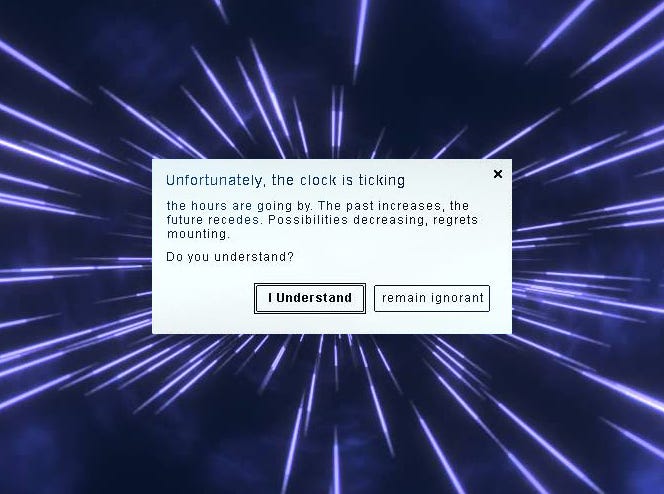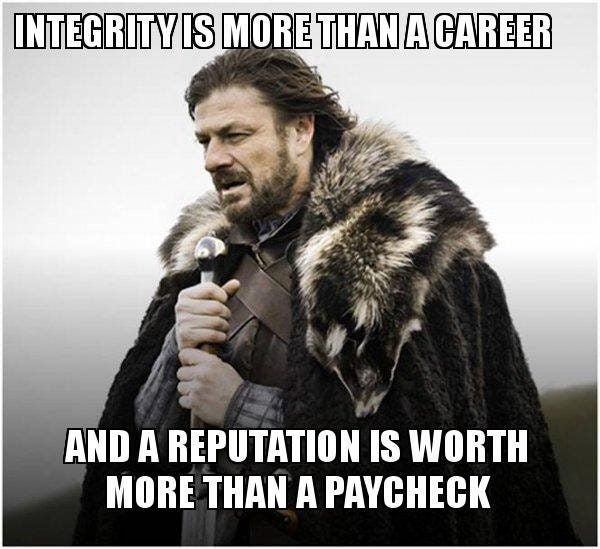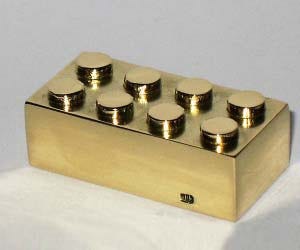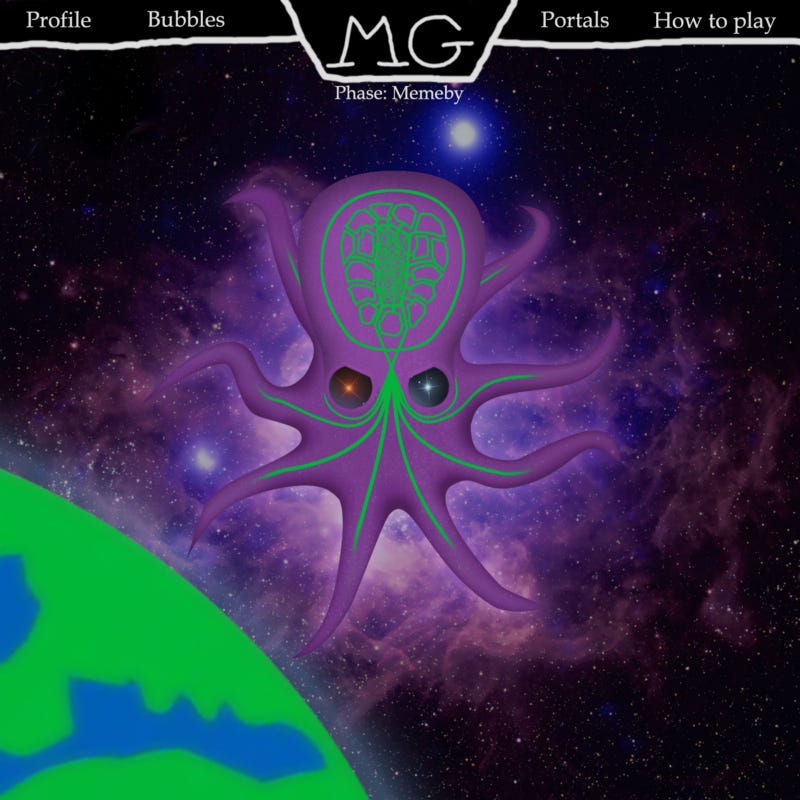WTF is MetaGame?
Literally, “a game outside the game”
In our case:
MetaGame is a Massive Online Coordination Game. An open-source framework for autonomous humans and decentralized organizations, to coordinate in creation and exchange of value with the least friction and most fun possible.
But first…

What’s with the silos?
Silos
Let’s first talk about silos for a moment, shall we?
Up until recent breakthroughs in the database governance technologies you might know as “the blockchain”, we didn’t think too much of silos. They were kind of a necessary evil in most cases…
We did have things like “Log in with Facebook” and “Pay with Paypal” — so databases did talk to each other, it was just hard and less secure getting them to interoperate.
Let me make it clear, though; I’m talking silos at every level of scale:
A silo in your head — if you’ve been in crypto for a while, you probably have a better sense of the space than any website so far has offered.
Siloed developers and agencies — trying to make a name for themselves developing products nobody needs, just because they can.
Organizations such as Ethereum Foundation or ConsenSys within their own opaque silos and invisible hierarchies (and don’t tell me they’re flat).
The usual suspects holding fragments of your identity.

Accountability
Then there are these islands…
We have all these dapps and services on offer, all these organizations and agencies creating and offering value — but where is their home? Not their homepage, but a place where they make offerings and are held accountable.
Their Discords and Forums? — You can get banned.
Twitter? — Nobody will hear you unless you have tons of followers.
Reddit? — That’s better, but can’t pin reviews.
Reviews Site X — So easily corruptible you can’t take it seriously.
And this doesn’t even mention solo actors, the only place where their reputation is really accounted for, are freelancing sites.
All of these economic players need a social layer for discussion, coordination and propagation— and it can’t be centrally controlled.

Why now?
The technology for organizing and building in a decentralized manner is here now, so it seems ludicrous we’re stilloperating inside centrally controlled silos.
With DAOs finally here, the bar for launching and working in organizations has been lowered so much it seems urgent to have an inter-DAO reputation and coordination system.
It’s time we show the world it is possible to have non-parasitic governing entities, maintaining and advancing socioeconomic systems in a way that’s really driven by and beneficial to,the people.
The clock is ticking.

Possibilities
Imagine we had common pools of data you can tap into:
All the services in supply as well as in demand.
Organizations and their roadmaps, with trust indicators, requirements for joining, and optionally, transparent hierarchy.
All the best ideas being worked on, their status and leads.
Some of the things it would make easier:
For the people to make sense of the space and find projects they want to work on.
For ideas, easily find people willing to fund and build them.
For the people already building the software to get better signals.

Yeah, not all centralization is bad — especially if it’s achieved in a decentralized way.
How?
MetaGame

An experiment in building a digital-first socioeconomic eco-system; MetaGame is a fusion of social media and free-lancing platforms inspired by role playing games.
It is a network of (vetted) free agents, agencies and funds with a shared goal of building and driving adoption of better systems for humans.”
- MetaGame Wiki
Here’s some of the things the MetaGame will do:
Surface good projects and people
Slash bad actors and projects
Create information symmetry
Slash coordination costs
Evolve.
Players
Identities are likely to be based on 3Box, but are meant to serve more as a portfolio/landing page than a social-media profile.
Other than skills, titles and achievements, players may also pin:
Their side projects and affiliations
Ideas they’d like to work on
Whatever they’re passionate about
Here’s an illustration of what that might look like:

Guilds
A guild is simply a group of players. They differ from raid parties and rings, by their purpose being long term and not time-tight.
Guilds are either building their own project, offering services to existing projects, bringing resources to the table — or all of the above.
They don’t have to be launched through the MetaGame; they may also be:
Any existing development or marketing agency.
Any existing project or startup
Any existing venture fund
They get to play their own coordination games, but may be looked down upon if not ran as a DAO.

Guilds joining the game act as partners to the MetaGame with the resources that they bring inside the game. For example:
As a podcast, you offer exposure. It can be quantified and minted as “Memeberries” — half of these go inside the DAO, and the other half you are free to allocate/sell yourself inside the MetaGame ecosystem.
As an investor, joining, half the funds go into the DAO, and the other half is converted into “Funs” — which you’re free to allocate inside the MetaGame ecosystem yourself.
Of course, pouring resources inside the MetaGame DAO gets you votes.

Alliances
Alliances are collectives of guilds. Their main purposes are on-boarding players & guilds, and minting achievements. The first two alliances will be MetaFam and MetaCartel.
All players may be members of multiple guilds, and all guilds may be members of multiple alliances.
Reputation

How do you solve for Black Mirror-like scenarios with social scoring?
Mainly, by not having a social score at all.
Instead of the standard reviewing system — which only offers an illusion of safety anyway — we use insurance. By committing to do some work inside the MetaGame, you stake tokens which then serve as recourse in case you fail.
Stats
Depending on how close to an RPG we want to take this; we may still implement some kind of a stats system — For an easy overview of what the player biases are (eg. speed vs perfection), or what their skill-specific levels are.
Achievements
Achievements, are certificates of deeds inside the MetaGame. They are minted by the alliances and come in the form of NFTs. The first one established will likely be either by the MetaFam or MetaCartel.
That’s massive — how will you build it?

Ethereum DApps
This is where Ethereum’ composability and “open-sourceness” comes in. A lot of the components needed for this have already been or are being developed by separate projects — it’s only a matter of getting them aligned with the bigger picture.
Phase 0 — Seememe
The game will evolve in phases, allowing people to start “playing” right away — building the game is a game unto itself.

More professionally termed “The Seed Building Phase” — is all about building a bulletproof foundation and having it meme around.
The objectives are:
Think through and define all important components and battle test them.
Build a website with basic functionalities integrated.
Produce a ton of content communicating MetaGame to the outside communities (articles, interviews, songs, comics — anything goes).
What those basics are:
Know mem — A wiki, specced and ready to be used as blueprints.
To buidl — A board of what the MetaGame needs done.
To shill — A board of the MetaGame understanding and propaganda.
Metafam — A list of builders, and guilds supporting the MetaGame.
Phase I resources?
Free time
Seeds
…Seeds?

And who decides how many seeds someone’ work is worth? We all do, together. It’s a continuously evolving process, always up for scrutiny.
Past Phase 0, even the most fundamental concepts are still debatable. Debate with us.
Phase I — Memebryo
The homepage now looks something like this:

By the “Memebryo” phase, all important modules are specced out and the critical components are starting to come online.
Things like:
There are guild profiles now and the first guilds start joining the game.
The game now has “supply” and “demand” boards for the guilds and players to start exchanging services.
Utilities such as the DAO launcher and “Achievemint” are now online.
Phase II — Memeby

Our little CryptOcto has still not quite grown up, but most of it works:
There’s fat order books both on supply and demand sides.
There are recommendation lists for any service, studies or leisure you might need inside or outside the game.
The players no longer need to use outside services such as Telegram or Twitter to talk to each other — there are chats and feeds inside the game.
The game is now starting to act sort of like a factory with multiple assembly lines, which is kind of it’s main purpose:
It does for ideas, what Henry Ford did for the automobile production.
There are things like:
Memepool — A list of “what we could build” ideas, curated by the community.
Pipelines — An easy way of checking what’s being built, what’s the status, and what are the current roadblocks and leads.
Reputable guilds and players offering all services any project might need.
Achievement/mischiev walls of fame and shame.
Phase III — Octomeme

The last phase, but actually only the beginning — times are now measured in epochs rather than phases. All the important modules are online, tested and proven
The world gets more interactive & visually appealing — the homepage now features a 3D model of the world and you’re able to do things like:
Spin it around, zoom around, walk around etc.
Buy “skin in the game” for your guild to build an HQ.
Take quests off buildings or people walking around with “?” above them.
Turn the octopus “off” and see Earth mapped with crypto friendly places.
The range of different kinds of resources now on offer inside the game has widened immensely. There are now guilds offering goods & services for any need you might have as a human being:
Food & shelter
Beer
Psychiatric help?
But… It kind of looks evil all sucked up around the planet…
Don’t worry. It’s sitting up on North Pole, and only sucking out water and CO2 — it’s about to grow plants ;)
Skipping some epochs now…
This one marks a point well past the next bull-run, and the point of mass adoption of these technologies — what it might look like:

And although you may now be inhabit a number of co-living/co-working spaces on offer through the game, the social side inside the game is getting more interesting too:
Virtual Raids (hackathons for more than just coding).
The Dungeons now graphically feature the demons we’re fighting along with players dealing damage to them.
Virtual meetups, conferences, workshops etc.
We don’t like people spending so much time in VR, but it is what it is — if that’s what it is. The Game will be advising people to log-off, spend some time breathing fresh air and hanging out in one of many real-life Utopias.
This is not all, but let’s not spoil the story…
Player Journey
Here’s what joining the game might be like:


Become one of us:
Then drop by our Discord
